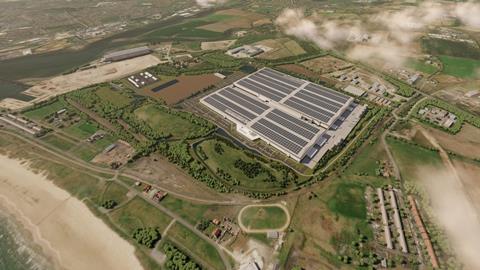Australian company Recharge Industries, a leading provider of battery technology and a portfolio company of Scale Facilitation, has successfully bought BritishVolt. The move is set to create the UK’s first gigafactory. The acquisition will also play a critical role in the UK’s industrial and net zero strategies.
Recharge Industries specialises in battery production, research, and development, and is currently developing Australia’s first large-scale lithium-ion cell production facility. The facility aims to provide safer, more efficient, and recyclable batteries, as well as investing in research and development of next-generation solutions to real-world and emerging energy storage solutions.

With the acquisition of BritishVolt, Recharge Industries plans to use its technology, including an exclusive license for intellectual property and battery technology, to build two gigafactories in Geelong, Australia, and the village of Cambois in Northumberland, UK. The Cambois Gigafactory will be a green energy project, backed by a global supply chain, strategic delivery partners, and significant customer agreements. The project will create thousands of skilled jobs in the North East of England, providing a much-needed boost to the local economy, claims the company.
David A. Collard, Founder and CEO of Scale Facilitation, said, “We are thrilled to have been successful in our bid for ownership of Britishvolt. Our plans are the right ones for the local community and the UK economy. Our proposal combined our financial, commercial, technology, and manufacturing capabilities, with a highly credible plan to put boots and equipment on the ground quickly.”
Edward Dawes OBE, Scale Facilitation UK-based advisor, added, “Working with our closest allies, America and Australia, and using world-leading and proven technology, now we can take Britishvolt forward with real purpose. Scale Facilitation and Recharge Industries have put in place a hugely talented and experienced team, who are looking forward to moving this project on at pace, aligned to strategically important regional, national, and international supply chains. This is good for the UK, good for the employees who are in limbo, and good for British consumers.”


















